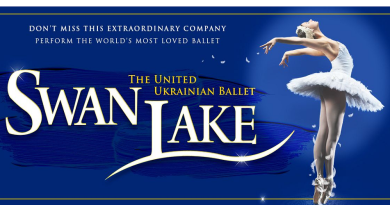A Truly Topical Thriller
If a Grand Canyon of a tale, with a taut plot, a distillation of sex, politics, corruption & betrayal, plus an explosive finale all sound like your cup of tea, then listen up: I have just the show for you.
The theatrical juggernaut in question first premiered in Rome on 14 January 1900, but is set during the Napoleonic Wars (June 1800), a time of intense political unrest. I’m talking about Giacomo Puccini’s tense operatic drama, Tosca. Before you say ‘Ugh! Opera!’ and turn your attention elsewhere, just bear with me …
For starters, Tosca is the fifth most frequently performed opera in the world – surely that’s not for nothing, right? You have to admit, the pronouncement at the start of this article reeks more of a trending Netflix blockbuster than a centuries-old classic. And, believe it or not, it’s very now. Whether it subversively points the finger at players in the grubby Weinstein saga, or the political machinations in Britain’s current leadership race, or virtually any other public drama of the day, this is an opera that shines the spotlight on the timeless flaws in human nature. As a commentary on current affairs, Tosca is a masterpiece of denigration.
Just skimming through a precis of this torrid tale – described by one 1950s critic as a ‘shabby little shocker’ – will have you joining the dots between its fictional characters and today’s all-too-real public figures. It goes something like this: painter Mario Cavaradossi is in love with famous singer and renowned diva Floria Tosca. Cavaradossi helps his friend Angelotti, who is being pursued by Baron Scarpia (Chief of Police), escape the long arm of the law. In pursuit of the fugitive, Scarpia discovers the affair between Cavaradossi and Tosca (the long-standing object of Scarpia’s lust). Exploiting Tosca’s heightened emotions (she suspects her lover of infidelity), Scarpia formulates an opportunistic plan: he will manipulate Tosca into leading him to Angelotti’s hiding place, and in the process illuminate Cavaradossi’s involvement. With Cavaradossi incriminated, Scarpia will have Tosca all to himself. In one fell swoop he gets both his man and his woman – win/win. A heady mix of temptation and opportunity prove enough to bring out the Machiavel in Scarpia – a concept not exactly confined to the year 1800 …
But it gets worse. With Cavaradossi in his clutches, Scarpia offers Tosca a ‘choice’: either she submits to his advances, or her lover will be killed. Talk about the devil and the deep blue sea. And the fact that all this drama unfolds over a twenty-four-hour period really intensifies the suspense.
Having premiered in Brisbane in 2019, this version of Tosca is showing at His Majesty’s Theatre in Perth between 14-23 July. In this production, Patrick Nolan transplants the action into 1970s Italy, amid the economic and social unrest of the period. Not so different from now, you might think. But while this epic tale is undoubtedly timeless and echoes any number of current dramas and personal crises, it’s not difficult to see why opera, however topical its themes, is perceived as inaccessible and elitist. Easy, too, to give credence to the argument that the post-covid landscape, beset as it is with tangible difficulties, leaves no space for a seemingly indulgent art form.
And yet, one could say the same thing about almost any form of musical entertainment. The traditional perception of opera as being outdated, pretentious and opaque are exactly that: outmoded ways of thinking that should, along with so much else, adapt. Terry Gilliam describes the opera experience rather nicely:
“I thought opera was for old farts, bourgeoisie and people in dinner jackets. Opera’s for anyone who’s willing to submit. Stick your nose in and find out what’s going on.”
Tosca is proof that opera is not outdated at all – it is, in fact, the opposite. And inaccessible? It’s true enough that many operas are performed in a foreign language. However, it is very common now for subtitles in English to be provided. This is certainly true of the current production of Tosca. As for being elitist, or detached from more mainstream frames of reference, opera is moving with the times – strategies such as more relaxed dress codes, offering cheaper seats for select performances, and new interpretations that depart from the original, all play their part in stretching the appeal of opera to wider – and younger – audiences.
Opera may never be for you. Hopefully, though, this will be a result of personal taste rather than stereotypical barriers. And before you do deliver your verdict, go see one. There’s a little Italian job I can recommend …




